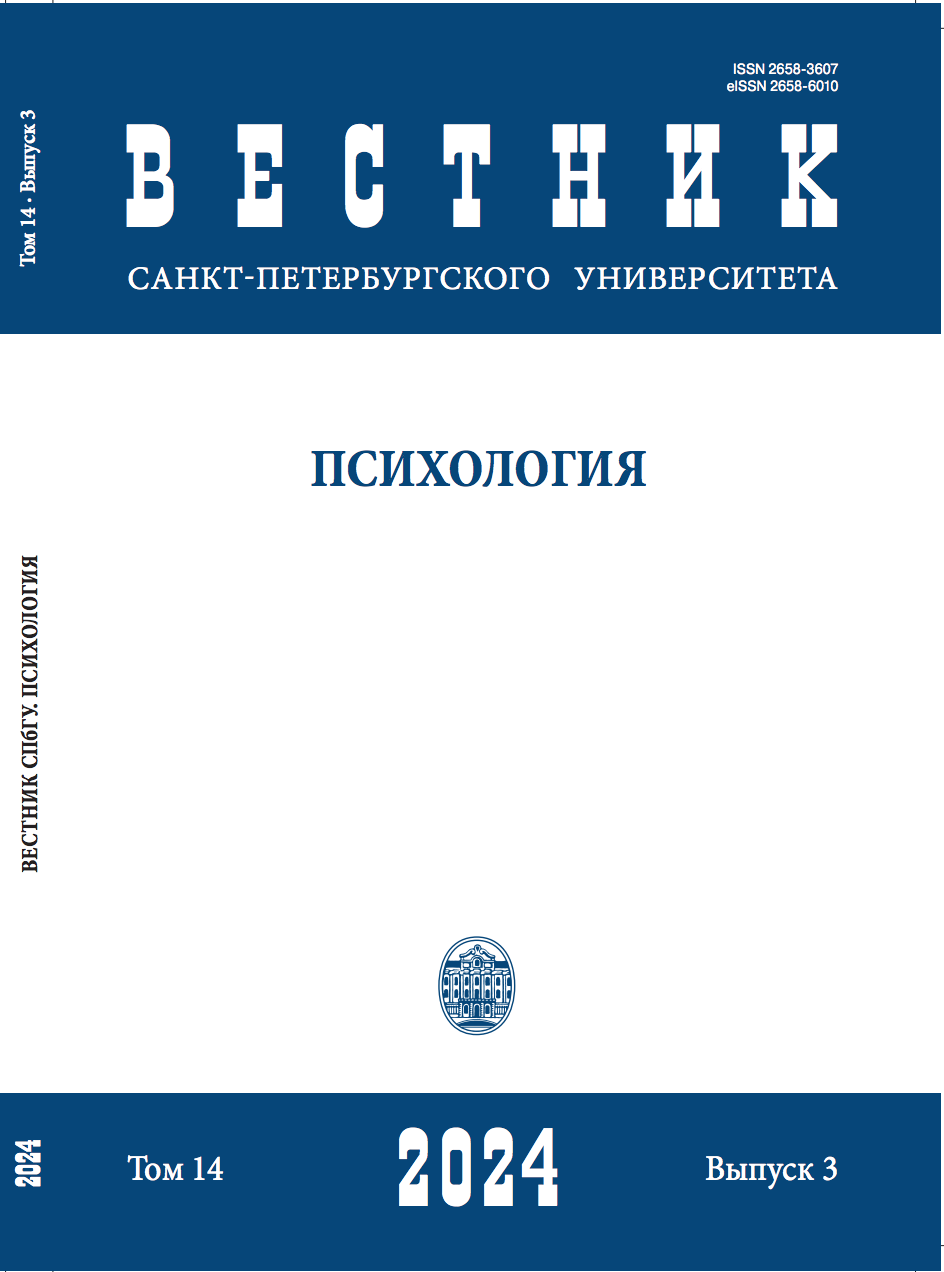Reconsidering the “Google effect”: Reduced productivity in externalized information recognition is expedient
DOI:
https://doi.org/10.21638/spbu16.2024.306Abstract
The decrease in an ability to independently recall information when it is externalized (e. g., stored on digital devices), also known as the “Google effect”, has become a subject of empirical investigation and a growing concern regarding the Internet’s negative impact on cognition. Several studies have questioned the reproducibility of this effect; however, recent work has replicated it under conditions where participants were confident in the reliability of subsequent access to the information, or in other words, in their ability to use the information in future activities. The findings of this study suggest that the mnemonic “Google effect” may be expedient, meaning that the reduction in recall of information stored on an external source does not occur “automatically”, as previously thought, but in accordance with an individual’s current purposeful and holistic activity. To test this hypothesis, we conducted an empirical study (N = 69, Me = 20 years) that simulated the work of detective, who assisted the police in investigating crimes. Initially, participants were presented with graphic stimuli (“clues”), with instructions based on a narrative explaining what action to take with each (delete, save, scroll through) and how much the material would be needed later (remember the clue, do not remember, or no clear objective). One week later, there was a memory test that involved recognizing and selecting stimuli from the first part, as part of the investigative activity in a detective story. Significantly, clues that needed to be remembered and deleted were recognized more often compared to those that needed to be remembered and saved or skipped. Meanwhile, clues that did not need to be remembered were recognized at the same level regardless of the action taken, significantly better than guess level. Thus, the mnemonic “Google effect” was reproduced, but only under conditions where the externalization of information was purposeful.
Keywords:
Google-effect, digital amnesia, cognitive externalization, cognitive offloading, cognitve gadgets
Downloads
References
Downloads
Published
How to Cite
Issue
Section
License
Articles of "Vestnik of Saint Petersburg University. Psychology" are open access distributed under the terms of the License Agreement with Saint Petersburg State University, which permits to the authors unrestricted distribution and self-archiving free of charge.




